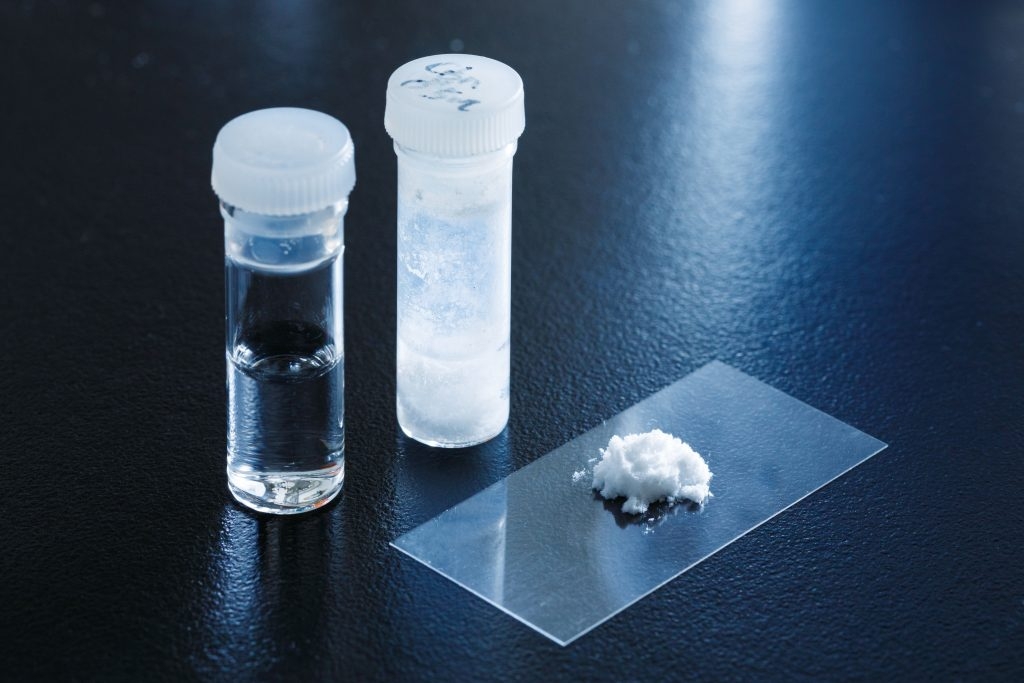The Kikuchi Laboratory in the Faculty of Advanced Engineering’s Department of Materials Science and Technology is conducting research into “biomaterials.” Biomaterials are materials beneficial for the human body.
Contact lenses and artificial blood vessels are examples of biomaterials used to supplement, or in place of, existing bodily functions.
Biomaterials are also used to facilitate diagnosis and treatment of illnesses and injuries. When we become ill, our body expresses material changes in the form of “biomarkers,” and by using biomaterials that identify just the biomarkers, it is possible to diagnose influenza and cancer simply via home testing. The earlier an illness is identified, the greater the chance of a full recovery, as well as the less money that would presumably need to be spent on treatment.
The goal of the Kikuchi Laboratory is to use this biomaterials research to advance medicine and contribute to better health for more people.

The Kikuchi Laboratory is currently focused on two areas of research which involve utilizing the properties of biomaterials to efficiently deliver drugs within the body.
The first involves research into a “hybrid material” capable of regenerating bones. This hybrid material is made up of a drug enveloped in a “coacervate” material which is covered by a capsule made up of the same ingredients as bone. When this hybrid material is administered into bones suffering from osteoporosis, the capsule exterior becomes part of the bone while simultaneously releasing the drug inside it to promote bone regeneration.
The other area of research is “drug delivery systems,” which seek to control drug action within the body.
For example, in the case of drugs used to treat cancer, there is the problem of risks associated with side effects accompanying the primary efficacy of the drug. However, by encapsulating the drug in a hydrogel, the drug can be released a bit at a time into area around the cancer, while the gel allows it the drug to adhere directly to the affected site, thereby hopefully controlling side effects.
It is no easy task to discover revolutionary biomaterials, but the researchers in the Kikuchi Laboratory are driven by the joys and depth of knowledge to be found in manufacturing as they continue to seek out new discoveries that will innovate health care. And as these discoveries accumulate, it will surely help bring us closer to achieving the global goal for 2030 of “ensuring healthy lives and promoting well-being for all at all ages.”
■ Main research content